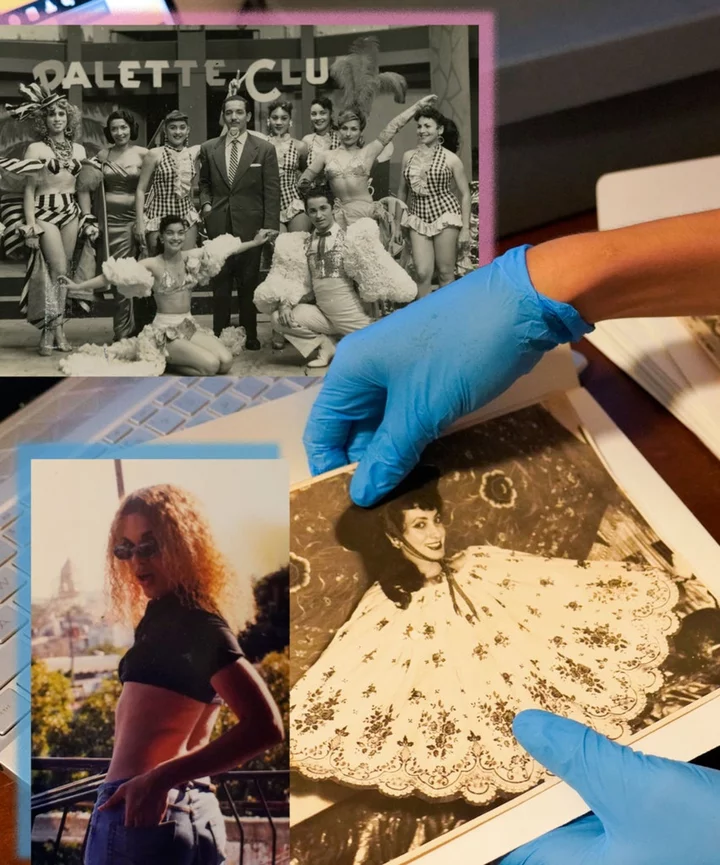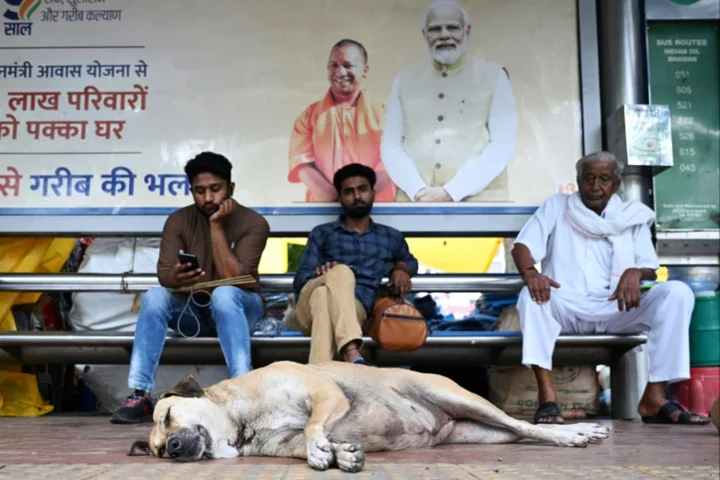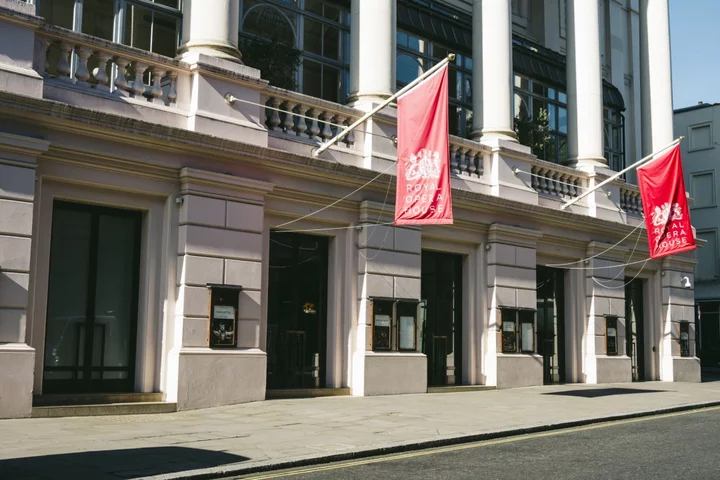Growing up in Placetas, Cuba, Librada González Fernández couldn’t get enough of her hometown library. As a kid, she would go after school and look at its picture collection that documented a variety of subjects, like the revolution, transportation, and children. “It was very basic,” she remembers. But ever since then, she has dreamed of having her own.
“I’ve always collected,” Fernández tells Refinery29 Somos. “I’ve always been very sentimental. I’ve always been very much about remembering.”
In 2019, while living in Brooklyn, she began to fulfill her childhood dream by creating the Archivo Cubanecuir, an archive documenting the lives of Cubans who have lived outside of the gender norm. She has been connecting with cuir (queer) Cuban elders across the Caribbean island and the United States to collect their photos, letters, and artifacts, piecing together the folklore she wished she had access to when she was younger.
The archive consists of more than 600 items — some of which she records or scans before returning to their owners; others she keeps. Fernández has posted some of the collection through her website and social media accounts, but now, she is ready to put it all online in a searchable public database.
“As a teenager, she longed for stories of trans Cuba: She wanted to know how people talked, how they dressed, and the joys they experienced.”
Sophia LebowitzThe first collections will be available to view online starting in the winter of 2023. Using the archival software Atom, Fernández’s archive will be accessible to anyone with an Internet connection. She uses her own descriptions and categorizations while having the online repository become part of the ecosystem of available tools used to research Cuba.
The collection started with Fernández, a transgender Cuban woman, wanting to learn more about her community. As a teenager, she longed for stories of trans Cuba: She wanted to know how people talked, how they dressed, and the joys they experienced. “I kept doing research and there was really no talk about trans people,” Fernández says.
This knowledge gap is what propelled her forward. Not having any official archival training, she started creating her history. “The first thing I started collecting were examples of homophobic and transphobic literature,” Fernández says. But she knew there had to be more to cuir life in Cuba, so she realized she would need to collect new stories and reinterpret already categorized material.
State-enforced cruelty and trauma have shaped the narrative of queer and trans people throughout Cuban history. “The way it had been conceived for a long time, cuir history in Cuba or gay history, was through punishment, through tragedy, through crime,” she says.
“The way it had been conceived for a long time, cuir history in Cuba or gay history, was through punishment, through tragedy, through crime.”
Librada González FernándezFernández found inspiration in other community archives like Historia Negra de Cuba, a community archive about the Black Cuban experience that Marley Pudillo curates. The two started their projects at around the same time. Pudillo, a cuir Cuban historian, sees Fernández’s work as radical, a challenge to the Cuban history he grew up learning.
“All we see in this view of history is white men leading the country toward an idea,” Pudillo tells Somos. Through Archivo Cubanecuir, Fernández rejects that serialized history and makes space for cuir and trans people to tell their own rich stories.
“When you have people like Librada trying to connect in such a personal way with her own history, what you get is groundbreaking,” Pudillo adds.
This is especially true when you consider that Archivo Cubanecuir spotlights moments of trans history that previously didn’t register as part of the trans experience. “Librada has found materials in our collection that we didn’t classify as relating to the trans experience in Cuba,” says Amanda Moreno, the Director of the Cuban Heritage Collection at the University of Miami.
Fernández’s next step is to take all she has collected and turn it into descriptive archival language. This can pose a hurdle because institutional archives can rely on outdated language based on prejudiced beliefs when describing trans people. Fernández experienced this first hand, often having to use traumatizing and offensive language to find material in other archives.
“What if we could look for ourselves with dignified language, with respectful language, with language given to us by ourselves?”
LIBRADA GONZÁLEZ FERNÁNDEZ“What if we could look for ourselves with dignified language, with respectful language, with language given to us by ourselves?” Fernández says.
Naming authority groups, like the Library of Congress, produce lists of controlled vocabularies that archivists use to describe a topic. However, it is rarely people from marginalized groups that choose the words to describe their community. “There’s been pushback from communities and also from archivists and librarians who understand that a lot of the ways that we used to describe people were very offensive and damaging,” Moreno says.
A determined Fernández aims to have Archivo Cubanecuir be a place where trans individuals can search for themselves with dignity while at the same time acknowledging nuance and the reality that terms grow and evolve.
“It’s just as unfair to talk about the past in today’s terms as it is to talk about today with the past’s terms,” Fernández says. “You have to do both.”
“It’s just as unfair to talk about the past in today’s terms as it is to talk about today with the past’s terms. You have to do both.”
LIBRADA GONZÁLEZ FERNÁNDEZFernández’s experience being cuir, transitioning, living in Cuba and immigrating to the U.S. all give her added layers of sensitivity when looking at archival materials. “There is a layer to my work that is not just the collector layer,” Fernández says. “I am reinterpreting history.”
Currently Fernández is funding this work almost entirely out of her own pocket, and feels a sense of duty to continue. She says, “How many people get to live for so much?”









